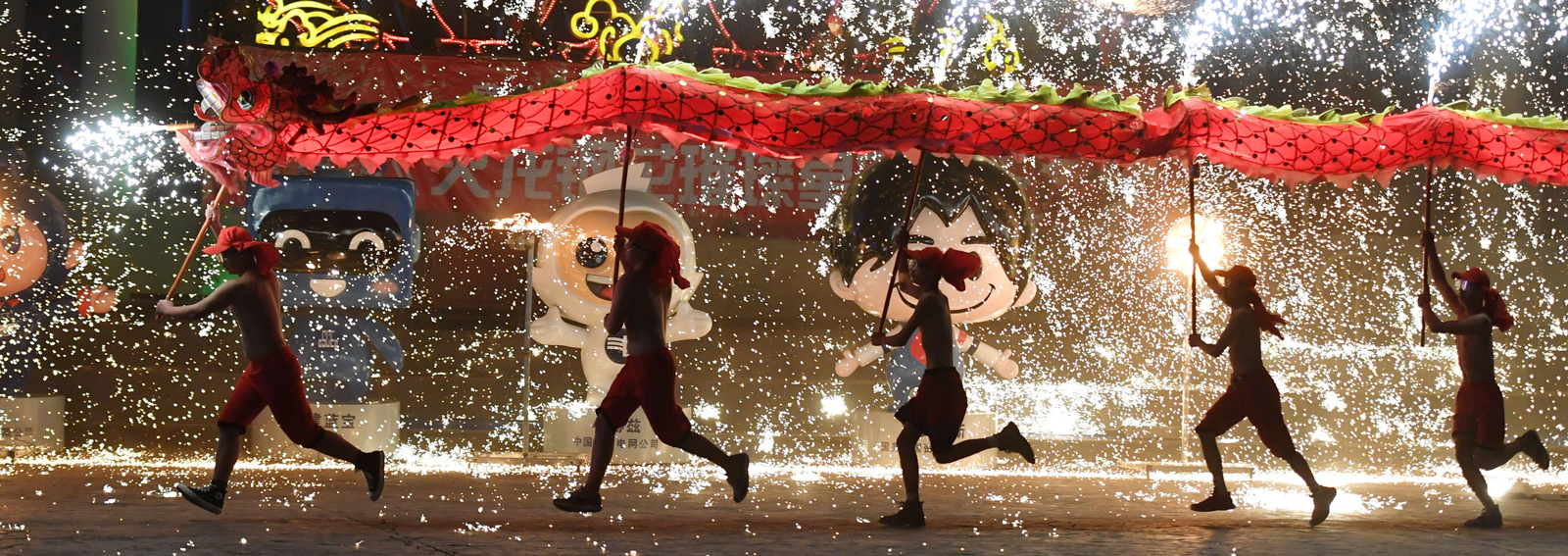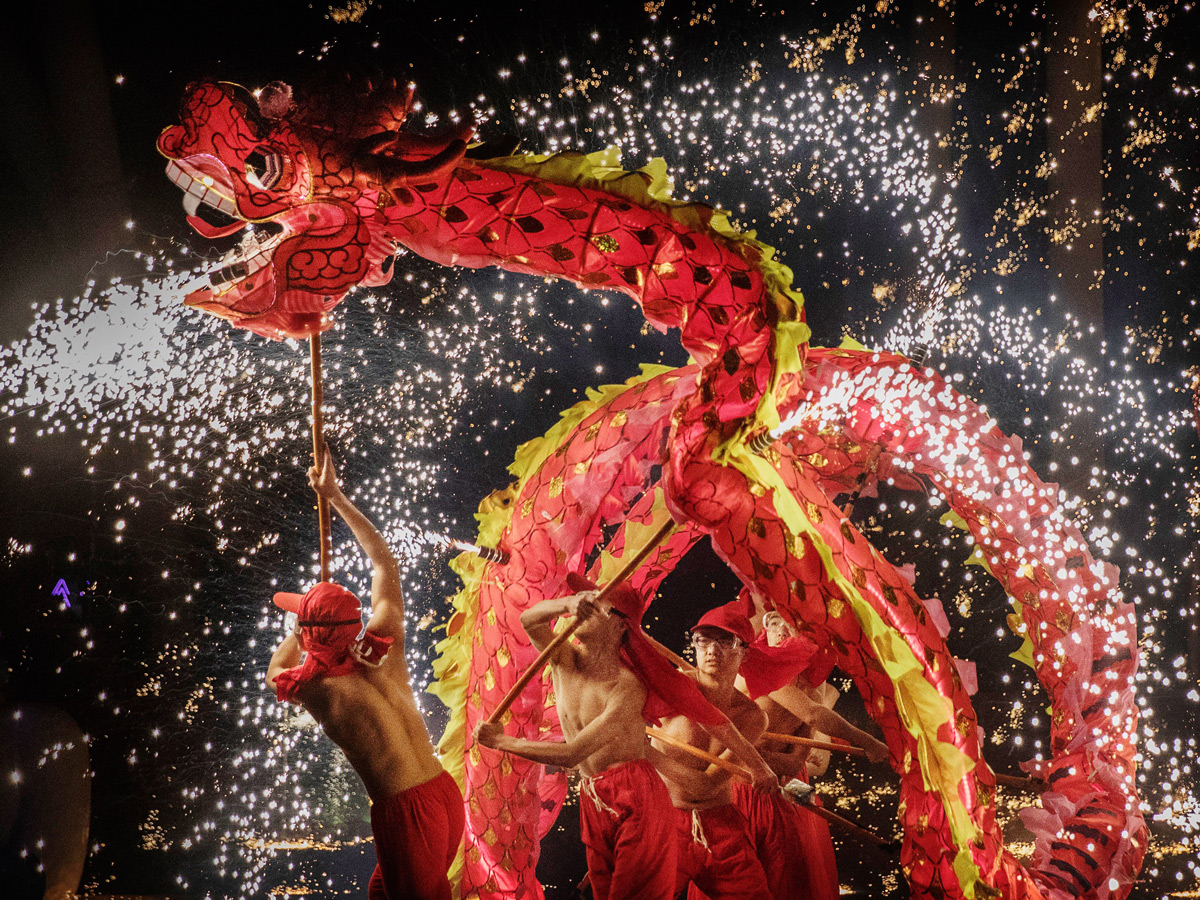

Chinese New Year in 2024 was celebrated on February 10th: it enters the year of the Dragon, the fifth of the twelve Chinese zodiac signs and a symbol of luck, strength, health, and harmony.
So much so that it is often placed inside or outside homes, precisely to protect oneself and ones loved ones from misfortune and “evil spirits.”
According to Chinese astrology, people born under the sign of the dragon are energetic, strong, and intelligent.
In China, in Chinatowns around the world, and in Asian countries, celebrations to welcome the new year last for fifteen days, plus one: the festivities officially begin on the evening of New Year’s Eve with a family dinner. And they end on the fifteenth day of the first month of the lunar calendar with the Lantern Festival (February 24, 2024).
But preparations for Chinese New Year – or the Spring Festival – are underway weeks before. Among propitiatory rituals and prayers to the spirits of ancestors, visits to relatives and the exchange of lucky red envelopes, Chinese New Year is indeed one of the most heartfelt holidays in the Chinese community.
Lucky Rituals for a Fortunate Year (of the Dragon)

Chinese New Year: Propitiatory rituals, Rreparations, Curiosities
Among the preparations before the arrival of the new year, it is customary to decorate the house with red ribbons and trinkets, considered the color of good luck.
Then, traditional red envelopes, hongbao, are prepared, where paper money or coins will be put to give as gifts to relatives and family members. It is said that the content should never be odd and equal to four: odd numbers and the number “4” are associated respectively with funerals and death.
On New Year’s Eve, the real party begins: the family gathers en masse in the home of the oldest relative to eat a lavish dinner of traditional Chinese meat and fish dishes. Waiting together until midnight to set off firecrackers. It is believed that the louder the noise made by the firecrackers, the luckier the new year will be.
On the twenty-eighth day of the twelfth month, it is tradition to clean the house. More than simple cleaning, it is a real propitiatory rite: it is believed that “sweeping away the dust and dirt” is a way to ward off bad luck and make room for the fortune that the new year will bring. Fortune that should not be touched, at least for the first few days of the year, when it is customary not to dust to avoid removing it.
Chinese New Year: Lantern Festival
With the Lantern Festival (Yuanxiao), the period linked to the celebrations of the Chinese New Year closes.
Tradition has it that on the day of the Little New Year (which falls on February 24 this year), people take to the streets with a lantern made of rice paper and decorated with lucky phrases and riddles.
Once the lanterns are lit, they are left free to float in the sky, in the sea, in rivers, or in lakes. The last of the propitiatory rituals for the new year: dreams and wishes for the coming months are entrusted to them.
Chinese New Year 2024: How to Calculate the date
Unlike the Western New Year following the Gregorian calendar, the start date of the Chinese New Year is not fixed but varies every year. It is defined based on the ancient lunar calendar according to which each new month of the year begins with the new moon.
Based on the new moon, therefore, the date of Chinese New Year is established, which coincides with the first day of the second new moon after the winter solstice (December 21 in the Western calendar).
And while it is true that the dating changes from year to year, it is also fair to say that the date moves each time within a range of 29 days – between January 21 and February 19 -, that is the maximum time that elapses between one new moon and the next.
Burberry Launches Film In Celebration of Chinese New Year













